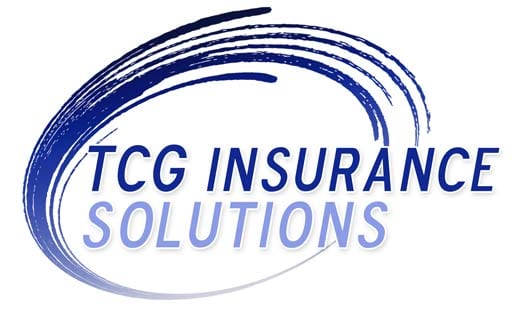Blog Post by Rebecca Fischer of ArkBH.com – Image by Pexels
Accessing Reputable, Free Addiction Treatment Services
Some people put off seeking addiction care because they fear that they can’t afford it. However, finding high-quality, affordable – or even free – addiction treatment may not be as difficult as you think.
Though some drug rehabilitation centers can be expensive, typically paid for with private insurance, many drug treatment centers offer services at a reduced cost or for free. These addiction recovery services are just as effective at helping people achieve long-term recovery from a substance use disorder (SUD) as more costly services are.
Keep reading to learn different ways to access free substance abuse treatment services, how to determine quality of care, and more.
Reliable Resources for Finding Free Rehab Centers
It can be hard to navigate the addiction treatment world if you are exploring treatment options for the first time. Plus, it can be hard to determine if a program or treatment facility is reputable. However, resources are available that can lead you to affordable rehab centers that offer a high quality of care.
One such resource is the addiction treatment locator offered by the Substance Abuse and Mental Health Services Administration (SAMHSA). This tool allows you to find treatment in your area according to your healthcare needs (e.g., detoxification, inpatient, or outpatient programs) and payment option needs (e.g., Medicaid acceptance, sliding fee scale or other payment assistance, etc.).
You may also utilize state and local resources if you can’t find treatment services through SAMHSA’s treatment locator. Help finding treatment is often provided through a state’s department of health or mental health, for example.
Additionally, many nationwide non-profit or faith-based organizations offer people with low incomes or no health insurance a wide range of services, including substance abuse treatment. The Salvation Army is one of the largest non-government providers of social services in America, offering free or low-cost services for people experiencing drug and alcohol abuse, housing insecurity, and other life challenges.
Indicators of High-Quality Addiction Treatment Services
Many free addiction treatment providers offer the same quality of services as private practice centers. There are ways to determine if a service meets national and state standards of quality treatment. Recognized and established organizations such as the Commission on Accreditation of Rehabilitation Facilities (CARF), The Joint Commission, and the Council on Accreditation (COA) offer accreditation to effective, safe, and quality treatment centers. Facilities that have earned accreditation usually post these organizations’ emblems on their “About Us” page or the home page of their website. SAMHSA’s locator tool offers a feature where you can filter centers that have one or all three accreditations.
Some free drug rehab centers have not earned accreditation status, but this does not mean they aren’t reputable. Ask a representative from the center or practice about certifications from SAMHSA, state licensure, or testimonials from past clients, all of which also indicate quality services.
Types Of Free Addiction Treatment Programs
Now that you know a little about finding free and reputable addiction treatment services, it may be helpful to consider which type of program is best suited for you or your loved one. Keep in mind that addiction specialists at rehab centers will help you determine this during the assessment or intake process, but it can be helpful to know what to expect.
The type of program, typically referred to as the level of care, is determined by the severity of a person’s SUD and other personal factors. For example, someone with a long history of drug or alcohol addiction, living in an environment not conducive to recovery, or experiencing dangerous withdrawal symptoms, will want to consider detoxification followed by inpatient or residential care. These programs offer people a supportive live-in environment to safely and successfully get through withdrawal and begin to uncover the root of their addiction through therapy and other treatment options.
People with mild to moderate SUDs may be candidates for outpatient treatment. Outpatient programs don’t require clients to live on-site, giving them more flexibility in scheduling and often allowing them to continue to work, go to school, or tend to family responsibilities. Many people start their addiction recovery in an inpatient treatment program and “step down” to less intensive outpatient services.
Sober living homes are another option, offering a free or affordable place to live while people in recovery find employment and more permanent housing. Many who complete inpatient treatment attend outpatient services while living in a drug-free transitional home.
Alternative Options for Free Addiction Treatment
Sometimes, people cannot gain access to a free addiction treatment program due to a long waiting list or eligibility requirements not being met. There are alternatives to professional help available that have proved to help people achieve sobriety. Alcoholics Anonymous (AA) is a 12-step program that allows membership to anyone who wishes to stop drinking. Meetings are free to attend, available widely, and offer community and support. Many off-shoots of AA that follow the same tenets have been created, such as Narcotics Anonymous (NA), Cocaine Anonymous (CA), and Al-Anon, for people with loved ones facing addiction.
These groups encourage members to take an honest look at their lives, come to terms with their addiction, and take specific actions for lasting recovery, including and importantly relying on a higher power of their understanding to overcome their addiction. For people turned off by the religious or spiritual nature of 12-step programs, SMART Recovery groups offer a secular alternative. SMART Recovery is a group of peer support communities emphasizing evidence-based approaches without faith-based dialogue.
Perseverance and Hope in Addiction Recovery
Addiction is a difficult condition to overcome, but recovery is possible through treatment. If you or someone you love is experiencing drug or alcohol addiction, there are treatment options available, no matter your financial situation. Nobody should have to face an SUD alone, and with the wide variety of effective, affordable treatment programs available today, nobody does.


